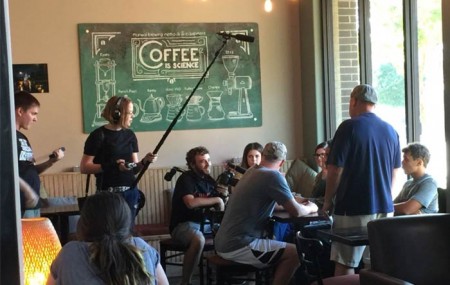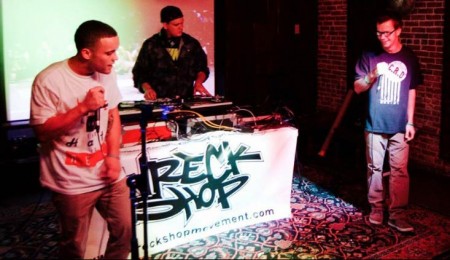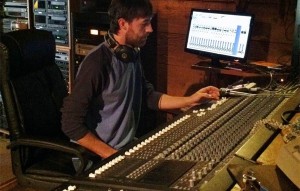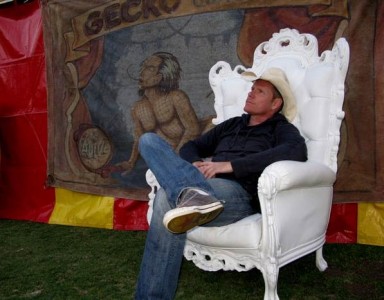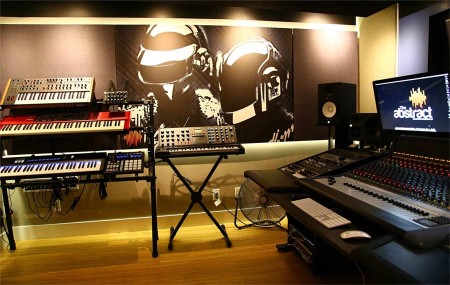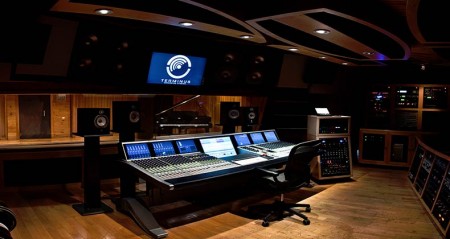
Terminus Studios – Studio A
Well, first and foremost, I’d have to say the people. The owner and manager of this studio are really, really cool. They allow us to operate it in the way that we do… The engineers, as well, are very knowledgeable the vibe here. So you come off of the street in Times Square, and you’re in this very beautiful studio with wood floors, and it’s private and there’s really nice people. It’s hard to beat that. And then on top of that, the gear up here is just insane. We have a stacked mic locker, and we just recently refurbished the B room with an array of outboard gear and an SSL AWS 924. You can come up here and record, mix or enjoy the penthouse view. It’s just a stand up facility.
RRFC: As a former student, and now as a mentor, why do you enjoy passing the torch to the younger generation as far as your knowledge that you’ve gained?
Jesse: Well, there’s certain kinds of people, right? There’s people who want to do this music thing because they think that’s what they want to do, and they want to get famous or rich or whatever. And then there’s people who just are genuinely…they’re going to be doing it anyway, so they might as well pursue it. And it’s really easy to tell the people who are going to be proactive and really apply themselves to this, and the people who just pay and expect things to just happen for them.
RRFC: Making contacts in the studio is one thing, but what about maintaining contacts? Any advice for students about that?
Jesse: The best thing that I can say is if you’re a musician or you’re a mix engineer is always have your stuff on you, handy ready to give to the right person on a flash drive, something like that. Carry flash drives and business cards around. Be ready with something just in case you do come across those people. If you can show them some music, something that’ll genuinely get them interested, that’s probably the best way to maintain relationships right off the bat.
RRFC: You were saying that the apprentice needs to take a personal responsibility for themselves instead of having things handed to them. What’s going to set a student apart?
Jesse: I think the big part of it is being proactive. If you come in, and your class is over and they’re like, “Okay, everybody go. We got a session,” you ask if you can stick around and help out…whatever you’ve got to do to be proactive and take responsibility, acquire responsibility so the people want to have you around. And not only that, but you have to be a fly on the wall, you really have to absorb… know that you got to bust your ass because it’s going to be over before you know it…You could learn any of this stuff from the program just by looking it up on the internet, right? The difference is that you are in the work environment. You have the opportunity to say, after class, “Hey, is there anything this week going on that you might need some help or some extra hands?”…Whatever you have to do to get in on these levels, because if you don’t do it, someone else will.


